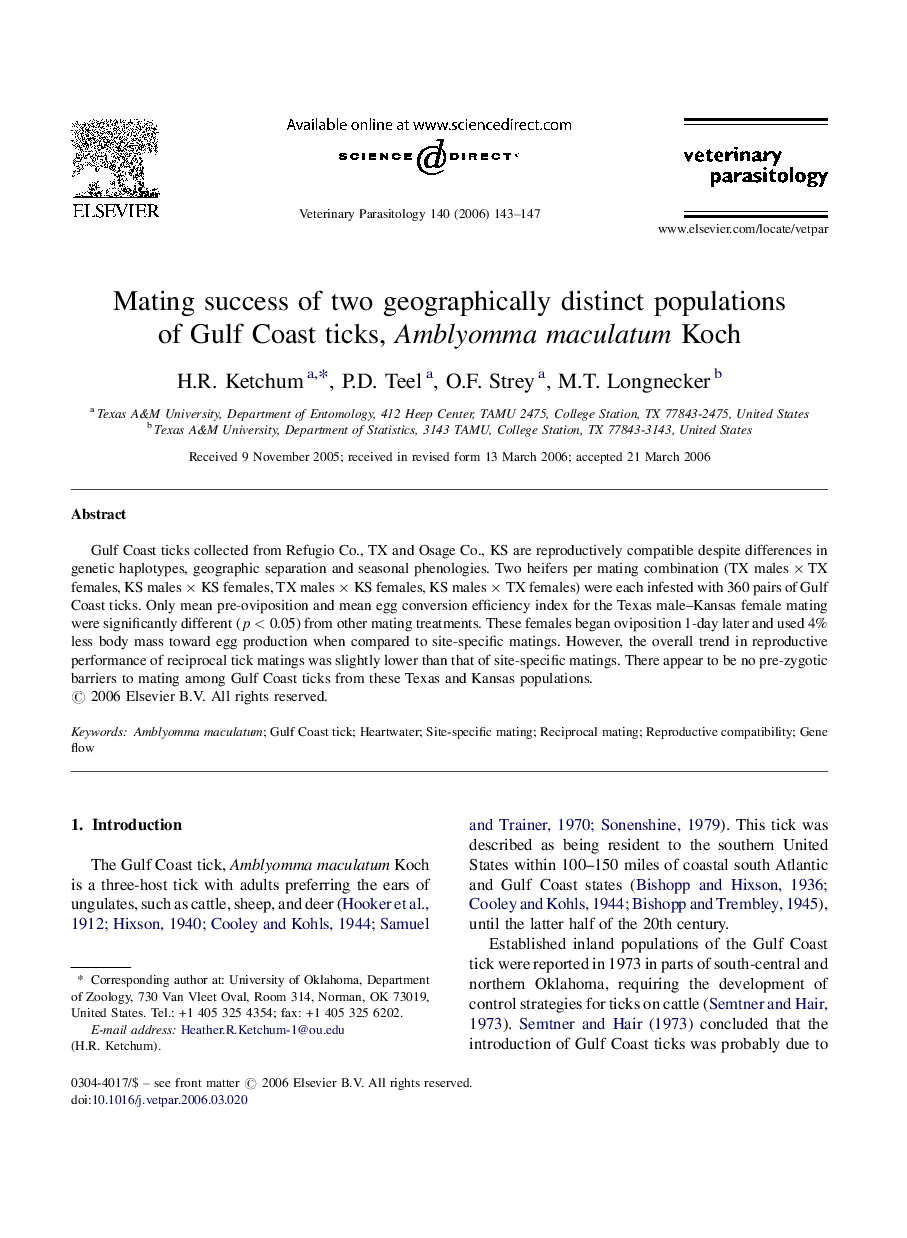| Article ID | Journal | Published Year | Pages | File Type |
|---|---|---|---|---|
| 2472455 | Veterinary Parasitology | 2006 | 5 Pages |
Abstract
Gulf Coast ticks collected from Refugio Co., TX and Osage Co., KS are reproductively compatible despite differences in genetic haplotypes, geographic separation and seasonal phenologies. Two heifers per mating combination (TX males Ã TX females, KS males Ã KS females, TX males Ã KS females, KS males Ã TX females) were each infested with 360 pairs of Gulf Coast ticks. Only mean pre-oviposition and mean egg conversion efficiency index for the Texas male-Kansas female mating were significantly different (p < 0.05) from other mating treatments. These females began oviposition 1-day later and used 4% less body mass toward egg production when compared to site-specific matings. However, the overall trend in reproductive performance of reciprocal tick matings was slightly lower than that of site-specific matings. There appear to be no pre-zygotic barriers to mating among Gulf Coast ticks from these Texas and Kansas populations.
Related Topics
Life Sciences
Agricultural and Biological Sciences
Animal Science and Zoology
Authors
H.R. Ketchum, P.D. Teel, O.F. Strey, M.T. Longnecker,
